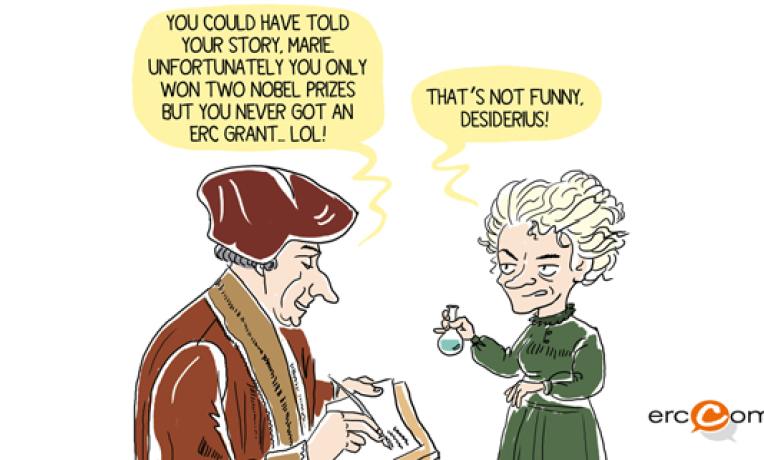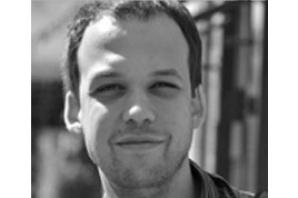The road to frontier research: Erasmus+, Marie Skłodowska-Curie, ERC
This year the European Research Council turned 10. But 2017 also marked two other important milestones: 20 years of Marie Skłodowska-Curie fellowships, which offer career development opportunities to early-career researchers, and 30 years of ERASMUS, that has shaped the new generation of young Europeans, launching students' mobility.
What do researchers think about the impact of these European programmes on their professional and personal life? Let's hear from those who have benefitted from all three.

Dr Gergely Szöllősi, Hungarian
2002/03 ERASMUS student at Humboldt University Berlin (Germany)
2011/13 Marie Skłodowska-Curie fellow (IEF) at Univ. Claude Bernard, Lyon (France)
2013/15 Marie Skłodowska-Curie fellow (CIG) at Eötvös University, Budapest (Hungary)
2017/22 ERC Starting grant at Eötvös University, Budapest (Hungary)
A passport to travel Europe
"I was born in Debrecen, on the Eastern side of Hungary. My parents were both researchers at the University of Debrecen, and I was exposed to science as a kid. My parents took me to the lab and showed me the instruments. I found it cool, especially the flow cytometer with its bright lasers. It was natural for me to follow their path. For my university studies in Physics I moved to Budapest. In 2002 I spent a winter semester in Berlin with an ERASMUS scholarship. This was before Hungary joined the EU and I had to apply for a visa. The ERASMUS program for me was a passport to travel to Western Europe. It was, of course, interesting to study at another university, in a different country. But it was a turning point in my life for a different reason: I met a girl, Hungarian like me, who later became my wife."
Career kick-off
"I graduated and then completed my PhD in physics under Imre Derényi’s supervision at Eötvös University in Budapest, working on theoretical models of evolution. During my PhD, however, I came to realise that the excitement in Evolutionary Biology was elsewhere, genomic data was coming out at an exponentially increasing pace. I wanted to learn to work with large scale sequence data. I contacted Vincent Daubin’s team in Lyon working on horizontal gene transfer who invited me to join them as a post-doc. While in Lyon, I applied for a Marie Curie Fellowship. It was really hard work writing a 30-pages proposal but, I got it! This was a very important step for my career, as it increased my scientific independence and provided recognition from my peers. The fellowship also offered substantially improved working and living standards: I could cover my own travel costs, buy equipment, and also build a family. The four years spent in France were an exciting time for many reasons, but, most of all, because both my children were born there."
Setting up a research group in Hungary
"In 2013 I applied for and was awarded a Marie Curie Career Integration Grant, which allowed me to move back to Eötvös University in Budapest, where I did my PhD, and rejoin Prof. Derényi’s lab. The grant covered half of my salary and my research costs and gave me the possibility to establish my own small research group. Pursuing my long term plans and becoming fully independent, however, required more substantial resources, so I applied for the European Research Council’s Starting grant. Receiving an ERC grant has allowed me to obtain a tenure-track position and to pursue my own research direction, in continued collaboration with my colleagues in Lyon. With the ERC funding, I will develop new methods to reconstruct the pattern and timing of genomic evolution by explaining differences between gene trees. I will apply these methods to answer longstanding evolutionary questions such as mass extinction events. Combining these new data with geological and paleontological information will contribute to an interdisciplinary understanding of the evolution of life on earth."
Freedom to choose a research agenda
"European fellowships and grants have given me essential professional opportunities and personal adventures that have shaped who I am today. With their support I have had the privilege to do research at the highest level, here, in Europe. Had I not received the Marie Curie fellowship, or more recently the ERC Starting grant, I may well be working in the United States today or elsewhere outside Europe. The ERC grant has also given the freedom to choose my own research agenda and establish a group working on fundamental research topics. It would have been difficult to obtain funding for my project otherwise, as national funding agencies tend to favour more applied research."


